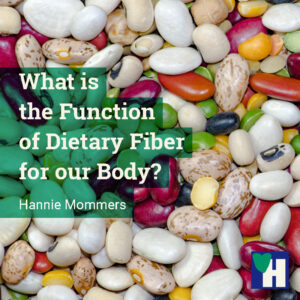
In The 6 Essential Nutrients to Have a Balanced Diet, I have mentioned that some say this should actually be “the 7 essential nutrients” because dietary fiber should be included as well. This poses of course the question “What is the function of dietary fiber?”.
Our ancestors had a diet rich in fiber. Gradually, a large part of our food has been refined and stripped of nutrients and fibers.
In the US, 40% of the inhabitants eat fast food every day, which does not contain any fiber. In Europe, most people eat an average of 15 grams of fiber per day, which should be double the amount.
Most of us know we’re supposed to eat a diet rich in fiber. Despite this basic knowledge, many people are confused by what fiber is and how to get it. And because a large percentage has or is cutting back on carbohydrates, we’re also cutting back on fiber.
Some of the links are affiliate links. As an affiliate associate, we earn a commission when you purchase any of the products offered through the shared links at no extra cost for you. This helps us maintain this website.
Table of contents
What exactly is dietary fiber?
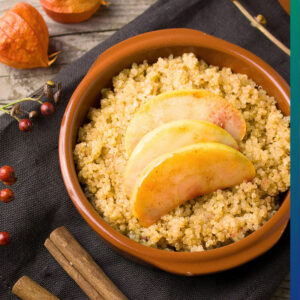
Fiber, dietary fiber, is essentially a non-digestible carbohydrate; your body cannot break it down and digest it. Dietary fiber is divided into two main categories: soluble or insoluble.
Insoluble fiber doesn’t dissolve in water and therefore moves through the bowel without any type of breakdown. It is, so to speak, a broom that wipes our gut clean. The result is regular stools and constant removal of build-up in the intestines.
- Whole-wheat grains;
- Pseudocereal;
- Vegetables;
- Seeds;
- Nuts.
Related: Nuts for our Brain, and other Superior Health Benefits
Soluble fibers absorb a lot of moisture and form a gel-like structure in the stomach and intestines. This stimulates bowel movement and protects our intestinal wall against inflammation.
- Legumes;
- Vegetables;
- Fruits;
- Oatmeal.
How much soluble and insoluble fiber should we be taking?
Despite the fact that a great number of people have an intake of fiber of about 5 to 14 grams per day, adult women should consume 25-30 grams of fiber a day and men should consume 35-40 grams a day.
Avoid a high-fiber meal right before you exercise. The chance of stomach or intestinal problems is high if your stomach contains a lot of fiber.
Related: Best Seeds to Eat for your Daily Dose of Healthy Supplements
Great sources of fiber
In order to make sure you’re getting enough fiber, it’s important to understand what foods to get it from. Great sources of fiber include:
- Green leafy vegetables
- Endive;
- Kale;
- Pak Choi;
- Spinach.
- Vegetables
- Artichokes;
- Avocado;
- Broccoli;
- Brussels Sprouts;
- Celery;
- Sweet Potatoes.
- Whole grains
- Oatmeal;
- Whole Grain Bread.
- Pseudocereal
- Buckwheat;
- Quinoa.
- Seeds & Nuts
- Chia Seeds;
- Linseed;
- Nut Butters (Almond, Hazelnut, Peanut);
- Pistachios;
- Pumpkin Seeds;
- Tahini (Sesame Paste).
- Legumes
- Black Beans;
- Lentils;
- Peas;
- Split Peas;
- White Beans.
- Fruits
- Apples with peel;
- Blackberries;
- Dried Plums;
- Guava;
- Kaki;
- Pomegranate;
- Raspberries.
- Psyllium husk
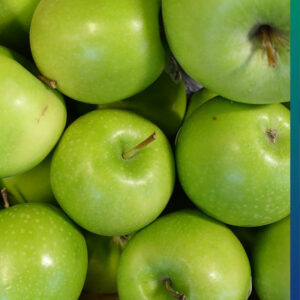
There are no fibers in meat, fish, eggs, cheese, yogurt, and little or none in refined products.
For example, ¼ cup of almonds contains 2,4 grams of fiber. A medium apple contains 4 grams. So one small snack of almonds and an apple contains about 1/4 of a woman’s daily fiber requirements.
To get a meal that packs a real fiber punch, add beans. A cup of prepared beans contains 16 grams of fiber; that’s half of your daily requirement! And whole grains like buckwheat, bran, bulgur, and oats contain a significant amount of fiber. Leafy greens are great as well; a cup of cooked spinach has 7 grams of fiber.
Health benefits of fibers
A high-fiber diet has several health benefits, as studies and clinical trials have shown. By eating more dietary fiber, we can solve some existing discomforts. Fiber is also an excellent preventative against disease.
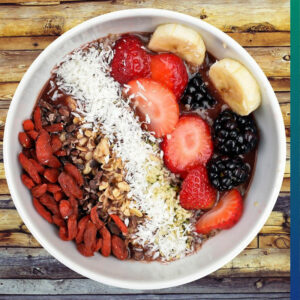
- Stimulate our metabolism;
- Balances blood sugar;
- Reduces inflammation;
- Help lose weight because we feel full;
- Lowers cholesterol;
- Balances hormones;
- Keep intestines healthy;
- Improves stool;
- Support immunity;
- Reduces the risk of diabetes2, lung disease, and heart disease;
- Remove toxins.
Is dietary fiber a prebiotic?
Prebiotics are non-digestible food ingredients that selectively stimulate the growth and/or activity of one or more types of bacteria in the large intestine, thereby promoting the health of the host.
Fermentable fibers are broken down by the bacteria in our gut. We call some fermentable fibers prebiotics, so food for our gut bacteria. In other words, all prebiotics are fiber, but not all fiber is prebiotic.
Prebiotics should not be confused with probiotics, which are living organisms that produce a similar effect.
A solution for flatulence and bloating
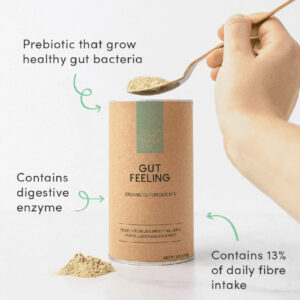
Previously I have written about peppermint essential oil as a solution for bloating or stomach discomfort. Another way to avoid gas and bloating is to eat plenty of dietary fiber.
Related: The 8 Most Important Essential Oils Everyone Should Have
Currently, I add a teaspoon of Gut Feeling from Your Super to my usual glass of water every morning as soon as I get up.
It’s a super-easy way to make sure I’m getting enough fiber. We only eat twice a day and especially in a warm summer, such as the one we have at the moment, I tend to eat too little.
A recipe for a healthy green smoothie
I got this recipe from Your Super with my order and it is delicious!
Ingredients:
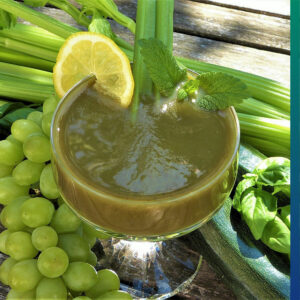
- 1 tsp Gut Feeling Mix
- 30 g spinach
- 1 small apple
- 100 g (frozen or fresh) pineapple
- 1 celery stalk
- 1 small chunk of ginger
- 250 ml water
Preparation:
Add all ingredients into a blender and blend until everything is smooth.
Pour into a cup or glass and enjoy!
I like sour apples the most, but taste is a personal thing. I also replaced the water with 125 ml almond milk and 125 ml coconut milk.
What is the function of dietary fiber?
Our body loves dietary fiber. It is also called – rightly – a superfood or supernutrient. Most people eat too little fiber. Since there are so many foods that contain fiber, it shouldn’t be that hard to eat more of them.
In addition, there are also supplements that are specifically intended to increase fiber intake.
Have at least one serving of whole grains, beans, and healthy snacks like raw fruits and vegetables, or nuts to make sure you’re consuming your daily fiber requirement. A bit of fiber with each snack and meal should be enough to keep your body running optimally and to stay healthy.
Which source of fiber I have mentioned do you like most? Tell us in the comment box below.

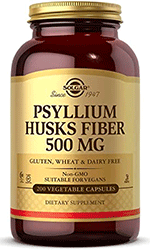
HI Hannie. Thank you for a very interesting article. Of course, I heard before about dietary fiber, but to be fair I had no idea that it’s so important for our health. But looking at your post, I definitely need to focus on having more of it in my daily diet, and your recipe for a smoothie looks not only healthy but also tasty. Looking forward to testing it in practice.
Hey Cogito, yes, I can assure you that the smoothie is really tasty. I love it myself. 🙂
I can imagine you had no idea about the importance of fibers. If you never had any trouble going to the toilet there has been no need to immerse yourself in the information. Yet, it is indeed necessary to get enough fibers, with or without present problems.
Coincidently, I was mentioning to my son this morning how difficult it is to take preventive measures because we hardly get any feedback on the result of our trouble. If we are in pain and take a painkiller, we almost immediately feel the result. But if we take enough fiber we will never know what the result of too little intake would have been.
Oh well, no need to get too philosophical about it. 🙂 Thanks for your comment and stay healthy.
Thank you for this post. I thought I knew a lot about nutrition before reading this, it is clearly well researched. Is it true, however, that dietary fiber is detrimental to individuals with Crohn’s disease? I heard a few anecdotal reports that a carnivore diet has worked miracles for these people.
Hi, JC, I don’t know whether dietary fiber is harmful to people with Crohn’s disease. But like you, I have heard good stories from people who eat only meat. A friend of mine had prostate cancer and has been free of cancer cells for a couple of years already, due to an organic meat-only diet.
In the end, every diet has its proponents and opponents who are either totally lyrical or completely dismissive. This friend is having his diet under the guidance of a certified physician. If someone is going to be very strict with a particular diet, I think that it is necessary to do that with help of a professional.
Personally, I don’t follow a particular diet. Just trying to have a healthy lifestyle with lots of variation in my food. 🙂
Thanks for your comment and stay healthy, JC.
There is a lot to learn about dietary fiber in food that the human body needs. Thanks so much for this post. Most people today eat less of this kind of food. I am afraid I am accustomed to artificial food as well. However, I think we should definitely eat differently. What could you advise a newbie on how to start? Because I have no idea.
Hi, Pasindu. As I know from my own experience, any change of habit is difficult. Yet, it’s great that you have the resolve to change. That’s the first step.
You may want to try my strategy. If I want to change my diet, for example, to lose a few kilos, or because my cholesterol is slightly elevated, I do the following:
* I print a list of foods that belong to the intended change and pin it on the fridge;
* In the morning I write in my journal what food I plan to eat that day;
* During the day I try to stick to that plan as much as possible;
* In the evening, I evaluate in my journal how the day went, how I felt, and whether I need to adjust anything in my strategy.
I like it very much to give structure to my intentions in this way. But everyone is different, so if this method doesn’t work for you, I advise you to look for a different strategy.
Good luck and stay healthy.
I’ve always thought that I had enough fiber until I started to track my fiber intake. I was way off and that caused my insane bloating. The biggest switch I made was cutting down processed grains and relying on whole grains almost entirely.
And probably that already helped you a lot, Khloe? Sometimes it’s such a small change that is causing huge benefits. It’s amazing, don’t you think? Very clever you tracked it for a while. Only if we measure things, we know for sure. 🙂
Thanks for your comment and stay healthy.
Thanks for the list, Hannie, fiber has always been an issue for me. I’m vegetarian and try to stay away from overly processed foods but this doesn’t seem to be enough. I will take your tips and print the list as well so I focus on adding some of these to my diet.
Good idea to print the list, Claire. I am surprised you have a shortage of fiber since you are a vegetarian. Vegetarians usually get lots of vegetables and legumes, which should be sufficient. It might be you don’t like certain things on the list? In that case, I can really recommend ‘Gut Feeling‘ I have mentioned in the article. It doesn’t have any repulsive taste and is easily added to some water or plant-based yogurt. Hope that helps. 🙂
Thanks for your reply and take care, Claire.
I had no idea dietary fiber was so important. I eat intuitively, don’t track my calories or weight myself and I’m at a healthy weight so I never thought I could improve something. Almost all the sources you’ve mentioned are part of my diet, except for broccoli and Brussel sprouts which I’ve never been a fan of.
By the looks of it, you’re doing probably great, Sophie. It’s not a problem to dislike a few vegetables, there is plenty of choice from other vegetables. And the variety you clearly have in your diet is really good. That’s one of the main aspects we should care about – variety.
Thanks for your comment and stay healthy.